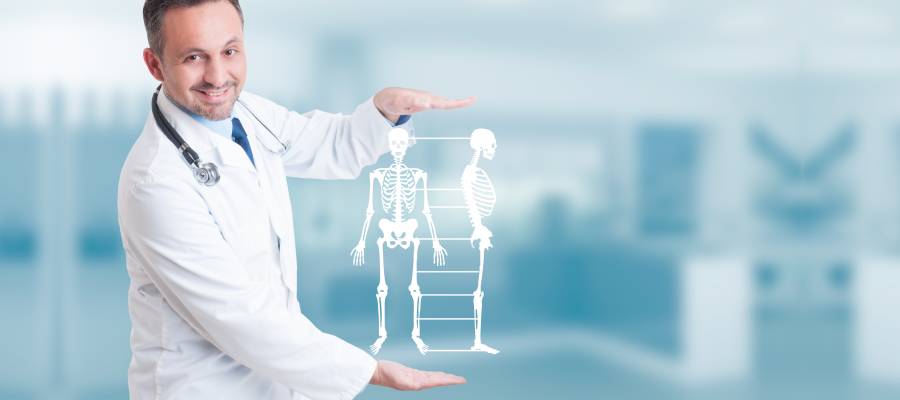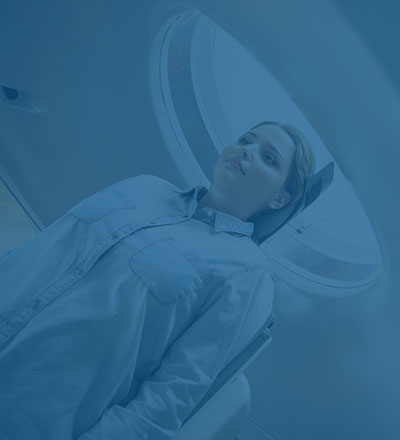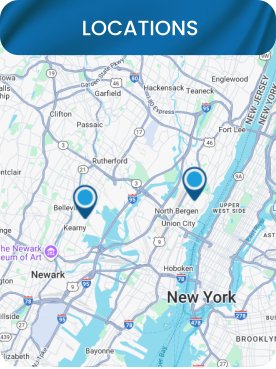What a Bone Density Scan Reveals About Your Skeletal Health
At Advanced Magnetic Imaging and Advanced Open MRI, a bone density scan provides crucial insights into your skeletal health by measuring the strength and density of your bones. This non-invasive test helps assess the risk of osteoporosis and fractures by identifying areas of bone loss. By evaluating your bone mineral density (BMD), the scan enables early detection and management of bone related conditions, allowing your doctor to recommend the most effective treatment plan for maintaining strong, healthy bones. For more information, contact us today or schedule an appointment online. We have convenient locations to serve you in West New York, NJ and West Hudson, NJ.


Table of Contents:
How is a bone density scan different from a standard X-ray?
How is the test performed, and which parts of the body are typically scanned?
How does a bone density scan help predict my risk of future fractures?
Who should get a bone density scan, and at what age is it typically recommended?
We offer a comprehensive range of diagnostic imaging services, including both bone density scans (DEXA/DXA) and standard X-rays, to help you and your healthcare provider make informed decisions about your bone health.
A bone density scan—also known as a DEXA or DXA scan—is a specialized, non-invasive imaging test designed to precisely measure the amount of calcium and other minerals in your bones. This test is the gold standard for diagnosing osteoporosis and assessing your risk of fractures, especially in areas like the hip and spine. At Advanced Imaging, our state-of-the-art DEXA technology uses very low doses of X-ray energy, ensuring accurate results with minimal radiation exposure. The scan is quick, painless, and can detect even early signs of bone loss, often before any changes would appear on a traditional X-ray.
In contrast, a standard X-ray is a more general imaging tool primarily used to visualize the shape and integrity of your bones and joints. X-rays are excellent for detecting fractures, infections, and tumors, as well as evaluating bone alignment. However, standard X-rays are not sensitive enough to identify early bone loss or mild osteoporosis, as these conditions typically become visible only after significant bone weakening has occurred.
At Advanced Imaging of New Jersey, we offer state-of-the-art CT (computed tomography) scans to help diagnose and monitor a wide range of medical conditions. During a CT scan at our facility, patients lie comfortably on a motorized table that gently moves through a large, doughnut-shaped scanner. As the table moves, X-ray beams rotate around the body, capturing multiple cross-sectional images from different angles. These detailed images are processed by advanced computers to provide your physician with clear and accurate pictures of the inside of your body.
Our experienced team utilizes CT scans to evaluate nearly any area of concern. Common applications at Advanced Imaging include:
● Head scans to detect problems such as strokes, brain injuries, or tumors
● Chest scans to assess lung conditions, heart disease, or blood vessel issues
● Abdomen and pelvis scans to examine organs like the liver, kidneys, intestines, and reproductive organs
● Spinal scans to investigate back pain, trauma, or degenerative conditions
The specific area we scan depends on your symptoms and your healthcare provider’s recommendations. CT scans at Advanced Imaging of New Jersey are fast, non-invasive, and generally painless. In some cases, our radiology team may use a special contrast dye to enhance the images and provide even more diagnostic information.
Our goal is to deliver precise imaging in a comfortable, patient focused environment, ensuring you and your referring physician receive the highest standard of care.
At Advanced Imaging of New Jersey, we offer state-of-the-art bone density scans, also known as DEXA or DXA scans, to help you and your healthcare provider assess your bone health with precision and confidence. Our advanced imaging technology measures the amount of calcium and other minerals in key areas of your skeleton, most commonly the hip and spine, providing a clear picture of your bone mineral density (BMD).
A DEXA scan at our facility can detect early signs of bone loss and osteoporosis, a condition that causes bones to become weak and brittle. By evaluating your BMD, our radiologists can determine your risk for fractures and help your doctor develop a personalized plan to protect your bone health. Your scan results include a T-score, which compares your bone density to that of a healthy young adult. This T-score helps you and your physician understand your fracture risk and make informed decisions about your care.
A bone density scan at Advanced Imaging of New Jersey is a crucial first step in identifying your risk for osteoporosis and fractures. Early detection allows for timely intervention—whether through lifestyle changes, supplements, medications, or other therapies—to help you maintain strong, healthy bones for years to come.
Schedule your bone density (DEXA) scan today at Advanced Imaging of New Jersey and take control of your bone health.
At Advanced Imaging of New Jersey, we offer state-of-the-art bone density scans, also known as DEXA or DXA scans, to help assess your bone health and risk for osteoporosis or fractures. This quick, painless test measures bone strength and is an important tool for both diagnosis and ongoing monitoring.
According to medical guidelines, women aged 65 and older and men aged 70 and older should have a bone density scan, even if they have no other risk factors. However, our board-certified radiologists at Advanced Imaging of New Jersey may recommend DEXA scans to younger patients if they have additional risk factors, including:
● Family history of osteoporosis
● Previous fractures from minor injuries
● Long-term use of steroid medications
● Low body weight
● Smoking or excessive alcohol use
● Medical conditions such as rheumatoid arthritis
If you fall into any of these categories, your healthcare provider may suggest a bone density scan as early as age 50, or even younger, based on your individual health profile.
If you have questions about bone health or have been advised to get a bone density scan, contact Advanced Imaging of New Jersey. We are committed to providing you with accurate results and a comfortable imaging experience. For more information, contact us today or schedule an appointment online. We serve patients from West New York NJ, North Bergen NJ, Union City NJ, Guttenberg NJ, Weehawken NJ, Hoboken NJ, Fort Lee NJ, Englewood NJ, East Rutherford NJ, Jersey City NJ, West Hudson NJ, Newark NJ, Nutley NJ, Secaucus NJ, Belleville NJ, Hoboken NJ, Bloomfield NJ, and the surrounding areas!

ADDITIONAL SERVICES YOU MAY NEED




